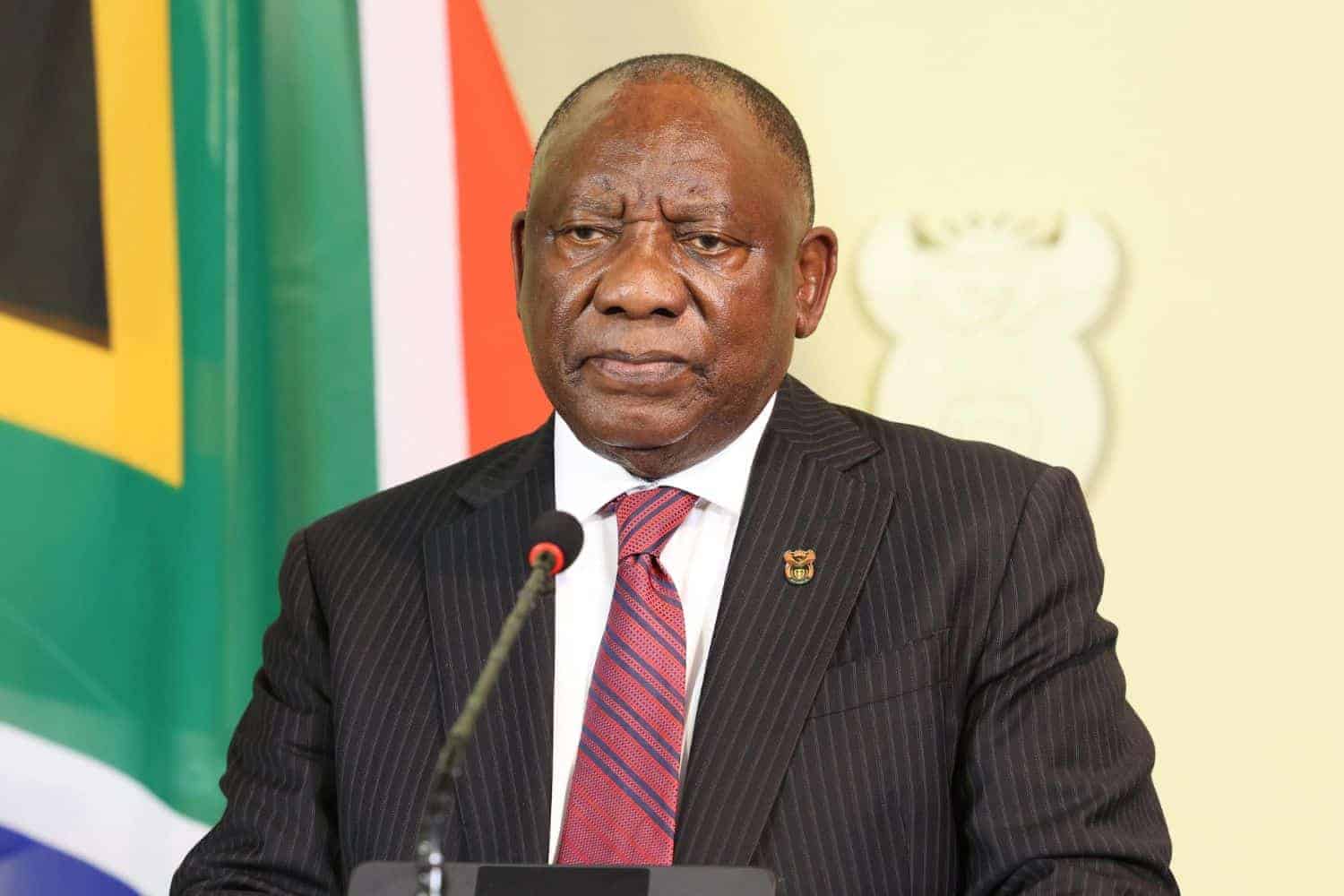The US House Committee on Foreign Affairs passed a bill tabled by Republican Ronny Jackson calling for a full review of US relations with South Africa.

President Cyril Ramaphosa says South Africa is in the dark about the United States’ push to ban ANC leaders, hoping that diplomacy will prevail.
The US House Committee on Foreign Affairs this week passed a bill tabled by Republican Ronny Jackson in April, calling for a full review of US relations with South Africa.
Sanctions bill
The Committee voted 34-16 on Tuesday to send the “US-South Africa Bilateral Relations Review Act” to the full House of Representatives, where it could be subject to a vote.
Jackson introduced the US-South Africa Bilateral Relations Review Act, providing tools to impose sanctions on “corrupt South African government officials” who support America’s adversaries like China, Russia and Iran, among others.
ALSO READ: US Congressman Ronny Jackson introduces bill to hold SA accountable
He introduced a bill that would mandate a comprehensive review of the bilateral relationship between the United States and South Africa.
Jackson said Representative John James was co-leading the US-South Africa Bilateral Relations Review Act legislation.
Ramaphosa responds
The bill comes as relations between the US and South Africa are at an all-time low after US President Donald Trump cut financial aid to South Africa, citing Pretoria taking Israel to the International Court of Justice (ICJ) and “strengthening ties with Iran, which supports terrorism globally”.
Speaking to the media after his visit to the BMW plant in Rosslyn, Pretoria, Ramaphosa said he and his administration had taken note of the passing of the bill, adding that it would not impact South Africa’s approach to dealing with the United States.
“We have heard what has happened in the US House committee, and that whole process still has a long way to go,” he said. “Discussions will be ongoing, and we don’t know exactly what is driving all this.”
“Our bilateral discussions and dealings with the United States will continue, and we will talk about all manner of things, including precisely this issue and many others. We’ve got good diplomatic relations with the US, and we want to enrich them and make them better. So, we are very positive,” Ramaphosa said.
[WATCH] President Cyril Ramaphosa says South Africa is in the dark about the United States' push to ban ANC leaders. He adds that he is positive about the outcome of engagements between the two countries.#Newzroom405 pic.twitter.com/0Xhop3NNFC
— Newzroom Afrika (@Newzroom405) July 24, 2025
ALSO READ: Is Trump about to slap sanctions on SA for misguided ‘white genocide?’
US tensions
South Africa’s relationship with the US sharply deteriorated during Donald Trump’s second term, during which he has accused the government of anti-white racism and started a refugee programme for white farmers and Afrikaners.
Relations were further strained following the remarks of former South African Ambassador to the US Ebrahim Rasool on Trump.
Rasool was expelled by US Secretary of State Marco Rubio after he claimed in a webinar that US President Trump (and, later, Elon Musk) are leading a global white supremacist movement.
Rasool was not replaced, and it was recently revealed that the US had, several months ago, rejected the South African government’s appointment of Mcebisi Jonas as a special envoy to its country.
The Presidency said that while Jonas, as special envoy, does not present diplomatic credentials to host countries in the way designated heads of mission or other diplomats do, he had helped facilitate trade and international relations efforts “to reset diplomatic relations and all areas of cooperation between South Africa and the United States”.
Tariffs
Ramaphosa met with Trump in May amid the rapidly deteriorating relationship between the two countries.
Earlier this month, the US hit South Africa with 30% tariffs “on any and all South African products sent into the United States”.
The tariff will take effect on 1 August.
In a letter to Ramaphosa, Trump claimed that the steep tariffs were necessary to correct what he described as “a persistent trade deficit between the two countries”.
However, this was challenged by Ramaphosa, who said the decision was based on a flawed interpretation of trade data.
ALSO READ: WATCH: Donald Trump ambushes Cyril Ramaphosa in Oval Office






!['It looks like a Star Wars movie', flood damages to Kruger National Park is substantial, minister says [VIDEO]](https://media.citizen.co.za/wp-content/uploads/2026/01/Kruger-National-Park-300x200.jpg)